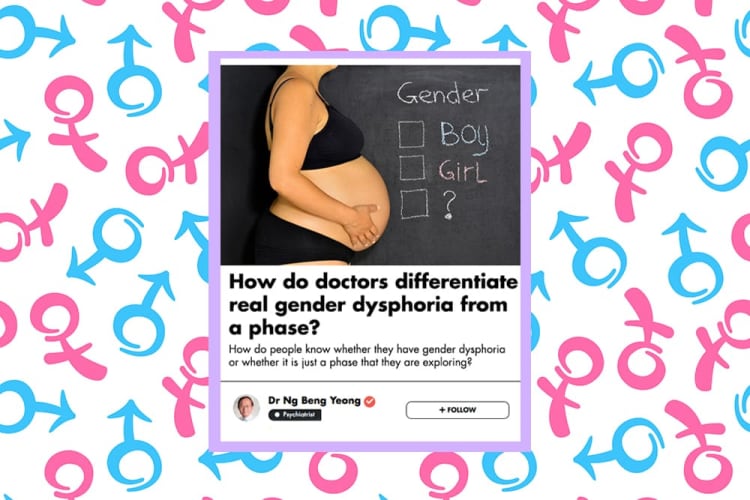
There are many ways in which a psychiatrist can help a person who has difficulty with his or her gender identity.
First of all, it is to establish the concerns with sexuality and gender identity. Locally, many individuals are confused by the meanings and implications of homosexuality, transgender issues, and cross-dressing.
Second, in the case of gender dysphoria, to discuss treatment issues for the condition. There are on-line support groups that have been set up to help these individuals to deal with the roadblocks ahead of them. Many individuals have concerns regarding national service so these issues can also be discussed in the psychiatric consultation.
Third, to establish if there are any co-morbid psychiatric concerns that may occur as a result of the problem with gender identity.
People with gender dysphoria often suffer from:
- Anxiety
- Depression
- Insomnia
- Occupational Difficulties
- Relationship Difficulties
These concerns and problems need to be treated and managed accordingly.
Fourth, to work closely with the person's family members to resolve any challenges in that area. Oftentimes, it is the parents who insist that they come forward to seek treatment as they hope that the psychiatrist can convince the individual not to opt for sexual reassignment surgery.
Fifth, for many centers who perform sex change reassignment surgery, they will usually request for a letter from the treating psychiatrist, informing them that the person is suitable for such surgery, he or she understands that the surgery is irreversible and that any major co-morbid issues have been addressed.



